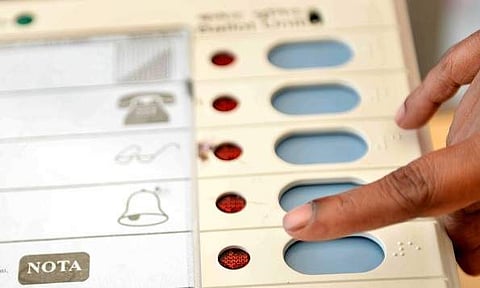

GUWAHATI: The Nagaland government is caught between the devil and the deep blue sea on the issue of urban local bodies (ULBs) election.
If it holds the polls with 33% reservation of seats for women, it will invite the wrath of some powerful tribal organisations and if it does not go ahead with the process, it will face action for contempt of an order of the Supreme Court.
On 9 March, the state election commission had announced that the ULBs election would be held for the state’s three municipal and 36 town councils on 16 May with 33% reservation of seats for women.
However, it cancelled the notification on 30 March as the Assembly on 28 March resolved to repeal the Nagaland Municipal Act, 2001 in toto and with immediate effect.
Subsequently, on April 5, the Supreme Court had stayed the government notification that cancelled the ULBs election after hearing a contempt petition filed by some organisations.
Earlier, several influential tribal organisations threatened to boycott the election if the same is conducted without repealing the Municipal Act that allows reservation for women and empowers the ULBs to collect property taxes.
The tribal bodies contested that quota for women would be an infringement on the Naga customary laws, as enshrined in Article 371(A) of the Constitution that protects its traditional way of life. They also have reservation against property taxes.
On April 4, one day ahead of the Supreme Court order staying the cancellation of the polls, Chief Minister Neiphiu Rio had said the government would not hold the election if people so wanted.
The first civic body elections in Nagaland were held in 2004, without reservation. Two years later, the Municipal Act was amended to provide for 33% reservation for women.
In 2017, the state government made an attempt to go to polls with 33% reservation for women but it backfired. Protestors attacked and set ablaze government buildings in parts of the state which saw the then Chief Minister TR Zeliang losing his chair. Rio does not want a 2017-like situation.
The state government is likely to hold a “consultative meeting” with the leaders of various tribal organisations in the next few days.
“People want the ULBs election but they stand opposed to the collection of property taxes and reservation of the post of chairperson in the ULBs for women,” a BJP leader told this newspaper requesting anonymity.
Nagaland is ruled by a coalition of BJP and Nationalist Democratic Progressive Party. For the first time since it attained statehood in 1963, two women were elected to the Assembly in recent Assembly elections. One of them was inducted into the ministry.